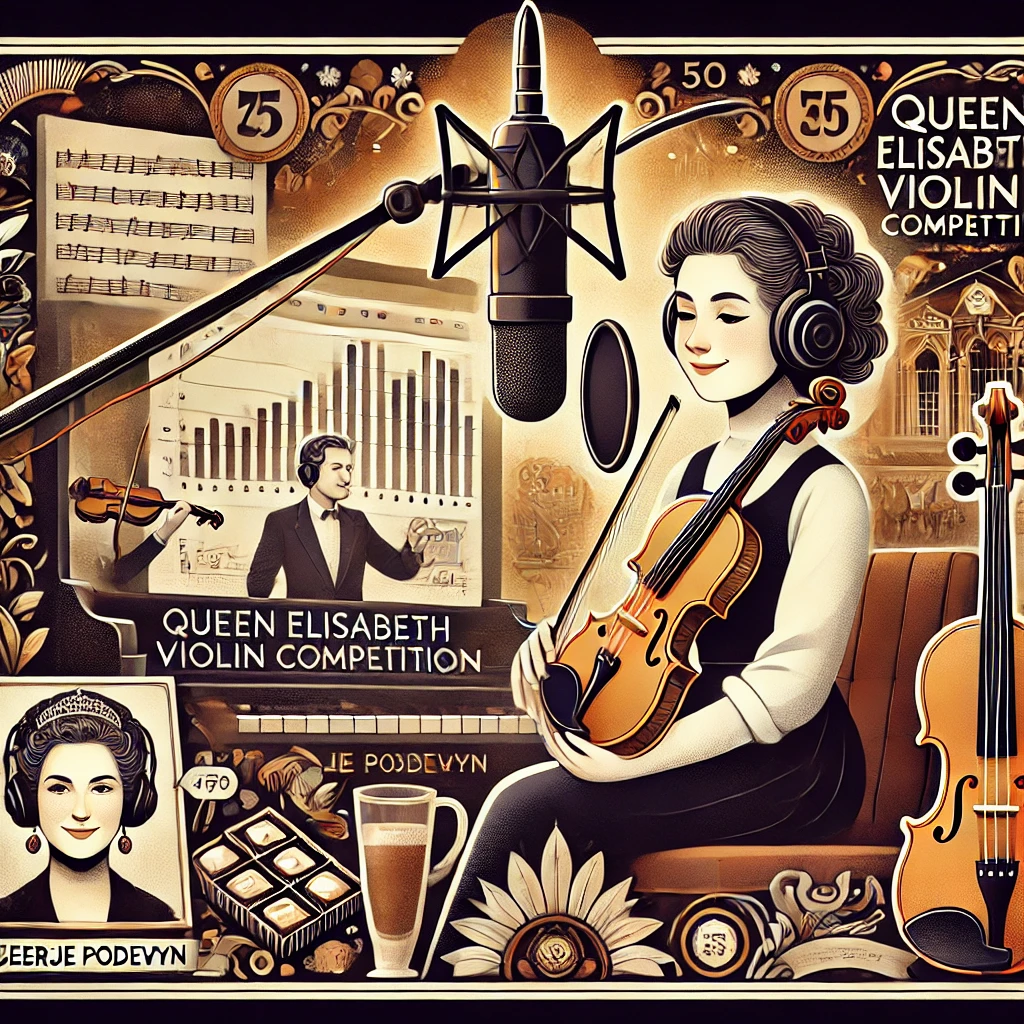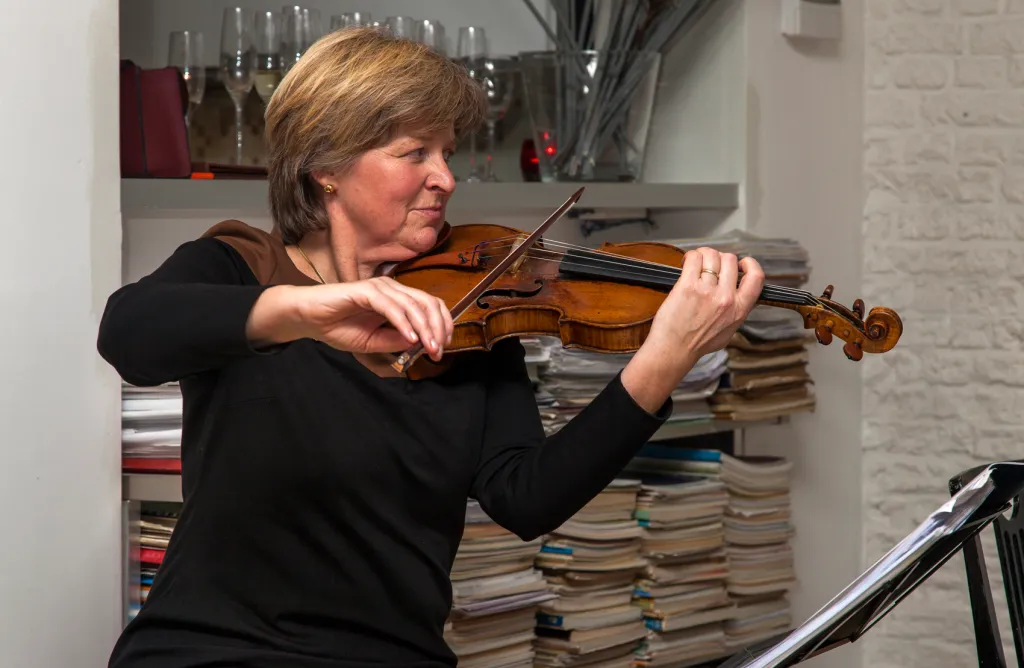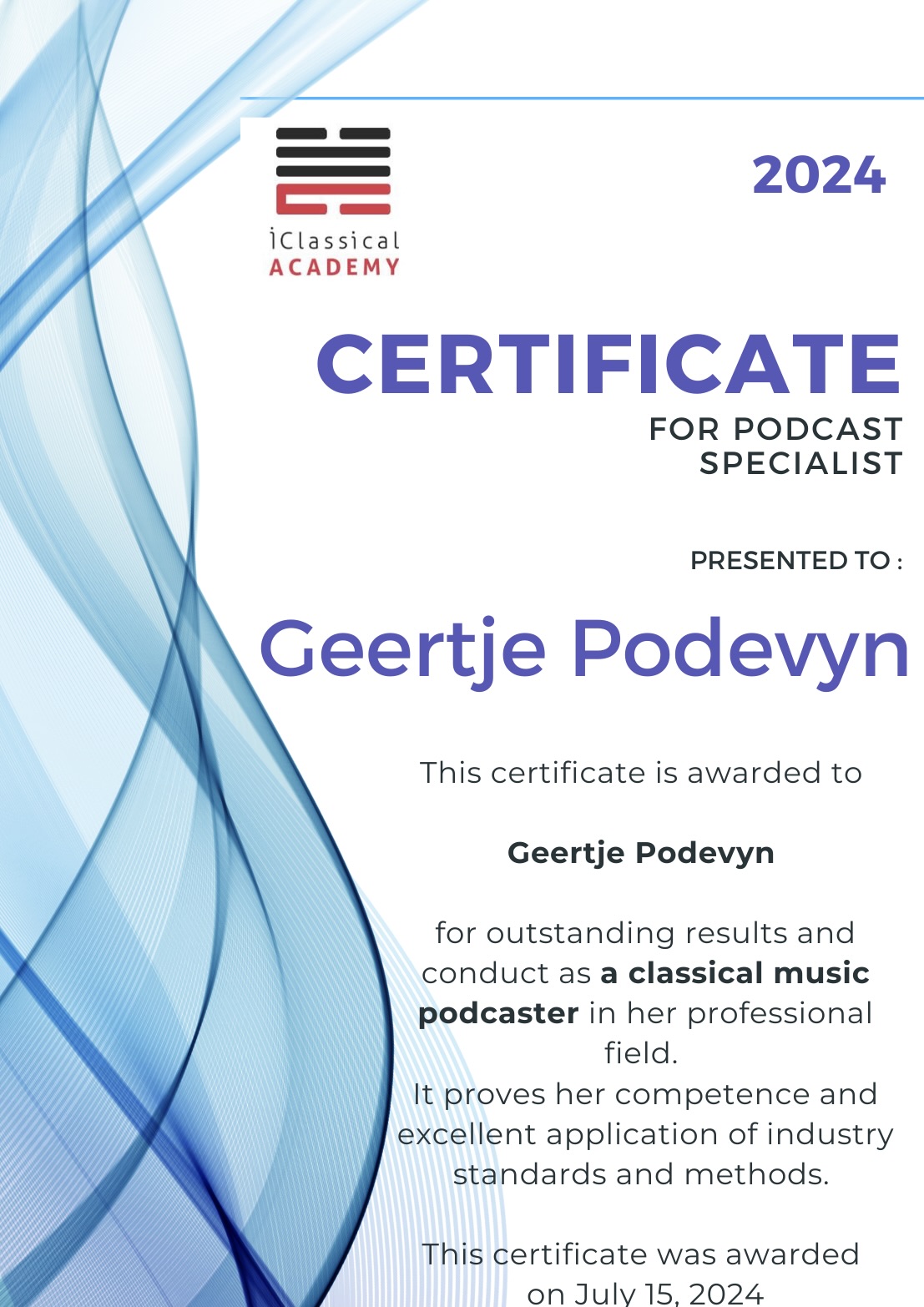
The Queen Elisabeth Competition is one of the most prestigious and challenging international music competitions in the world. Held in Brussels, Belgium, it has been a key platform for launching the careers of exceptional young classical musicians since its inception.
Violinist Gerty Podevyn created an exciting and revealing podcast series about this legendary music competition!
Episode 1
Facts and Figures
Format and Challenges
Age Limit: The competition typically attracts musicians in their early 20s to mid-30s.
Rounds: There are several rounds, including a preselection process, a semi-final, and a final.
Unique Feature: In the finals, participants perform a piece that is composed specifically for the competition, ensuring they interpret music no one has performed publicly before.
Orchestra Collaboration: In the finals, musicians perform with a full orchestra, adding to the difficulty.
Episode 2
Disciplines
The competition rotates among several disciplines:
Violin: The original focus, given the legacy of Eugène Ysaÿe.
Piano: Introduced in the 1950s.
Voice: Added in 1988.
Cello: Introduced in 2017.
Composition: While not a main competition, a composition contest often precedes the instrumental or vocal events.
Episode 3
Venue
The competition's performances are held in prominent venues in Brussels, including Bozar (Centre for Fine Arts), which provides a world-class stage.
VFamous Laureates
Notable past winners and participants include:
- David Oistrakh (violin, 1937 finalist),
- Leon Fleisher (piano, 1952 winner),
- Mikhail Faerman (piano, 1975 winner),
- Vadim Repin (violin, 1989 winner),
- Jodie Devos (voice, 2014 second prize).
Episode 4
Broadcast and Global Reach
The competition is widely followed around the world. Performances are broadcast on television, radio, and online platforms, making them accessible to a global audience. It is celebrated for its ability to showcase talent and provide opportunities for young musicians to secure concerts, recording contracts, and industry recognition.
Cultural Impact
The competition is deeply embedded in Belgian culture, making it a symbol of the country’s contribution to the classical music world. It also helps cement Brussels as a hub for international classical music.


Key Strategies for Orchestra Musicians
Gerty Podevyn is a successful violinist of PHILZUID in the Netherlands. Born in Flanders in 1962, she received her first Music Lessons with her Grandfather at 9 years old and later at the Local Music Academy of Lokeren. Her motivation and inspiration to start violin lessons came from her family, who are passionate listeners of Radio Klara Belgium.
Gerty Podevyn has a Great Love for playing in the Symphonic Orchestra and has gained experience in several Professional Orchestras.
Laureate Yehudi Menuhin Foundation Live Music Now
Geertje studied with Paul Malfait, Dirk Vermeulen, and Rudolph Werthen at The Royal Conservatory of Ghent, where She received her Bachelor’s Diploma in 1986 with great honors. In 1990, Geertje Podevyn became a Laureate of the Yehudi Menuhin Foundation Live Music Now!
Numerous Successful CD and TV Recordings
Gerty has made numerous successful CD and TV recordings with the Salon Orchestra Pomme d’Amour and the Tango ensemble Apunto!, selling more than 40.000 copies.
Key Strategies for Orchestra Musicians
She teaches worldwide and online and participated in iClassical's "Key Strategies for Orchestra Musicians" Program, concluding with a certificate of high achieved standards. More about the Program here
